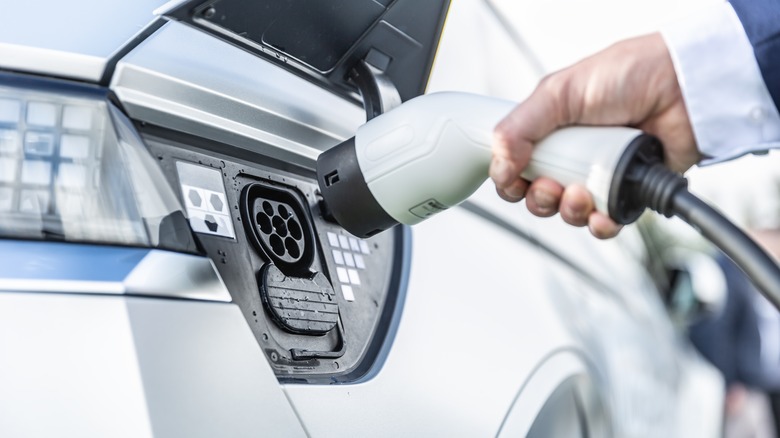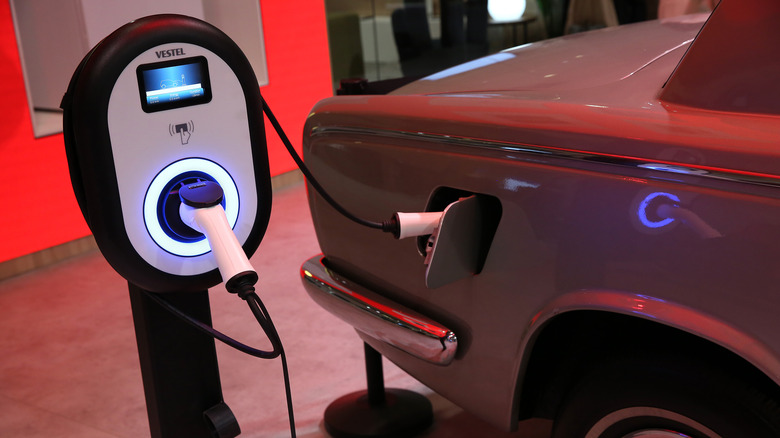New Electric Car Research Suggests Charging Isn't What Should Worry You
When it comes to electric vehicles, one of the biggest deciding factors is the range offered on a single charge. To a large extent, that's a valid concern. There's a reason people still prefer gas guzzlers, because they can be taken off-roading and long-range voyages without having to worry about finding a charging station on route. However, research based on EV owners' charging behavior and daily driving habits suggests that those concerns needn't be the core deciding factor before one decides whether to purchase a gas or electric car.
Pecan Street research (via CanaryMedia) suggests that 70% of all EV charging cycles involve the uptake of 10 kWh or less power per plug-in session. Moreover, a significant portion of charging sessions consume less than 5 kWh worth of electrical energy. One can attribute the lower power uptake to the increasing efficiency of EV battery packs, but the bigger takeaway is that EV owners don't really end up consuming a lot of power at plug-in spots to embark on their journeys. In short, while drivers may think they need a huge battery for their typical journeys, in actual fact they ordinarily require just a fraction of that.
According to 2021 research from the Energy Policy Institute at Chicago (EPIC), that involved experts from the National Bureau of Economic Research, EV owners clock "about half as many miles on their cars as the average driver." Plus, a majority of EV charging happens at home, and not at superfast charging stations. Per to an Energy Department research quoted by The New York Times, more than 80% of electric car owners charge their ride at home.
Promising innovation but grid concerns remain
The good news is that EV charging tech is developing at a breakneck pace. In October this year, experts at Penn State revealed a charging tech that can juice up a car's battery in just about 10 minutes. And fitting right into the daily driving habits of a majority of EV owners, lead author of the research Chao-Yang Wang mentioned that the breakthrough "will open a new possibility to downsize electric vehicle batteries from 150 to 50 kWh without causing drivers to feel range anxiety."
The tech fits right in with the average 250-mile range figures of entry to mid-budget electric vehicles, which is an added incentive for pushing the innovation into the mainstream. Even NASA is in on the innovation game with a next-gen cooling system that could reduce the charging times to just about five minutes. The bigger concern, however, is the impact of EV charging on the electrical power grid as adoption rises meteorically and charging behaviors evolve over time.
With home charging still the predominant method of powering electric vehicles, there's growing concern that the current state of electrical infrastructure may not be up to the challenge. In particular, current incentives that emphasize at-home charging at night have been questioned, as it could place unexpected strain on the charging grid. Pecan Street's research makes it abundantly clear that the future of EV charging is inherently tied to an efficient grid, which in turn, needs to account for the charging patterns.

